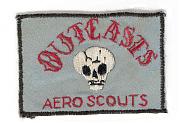This article, Blood Brothers, The Dual Origins of American Bellicosity, by Stephen Peter Rosen (2009), was linked on another thread. The author's thesis is:
It strikes me that the many (all ?) here at SWC, interested in US military history, might have more than one critique of the author's argument - as well as multiple agreements and disagreements with specific points of that argument.The United States will remain an unusually warlike nation in the years to come, and the reason is that we are in fact an unusually warlike people, despite having become wealthier and more multi-ethnic over the years. Our warlike nature resides in the lingering influence of the early environment and demography of British North America, subsequently reinforced by the impact of the War for Independence, the Civil War and World War II. My argument is that the United States had two near-simultaneous foundings, one by Scots-Irish people ready to fight when challenged, and one by Puritans ready to use force when legally authorized. The founding experiences of the Frontier and the Revolution mingled the distinct but mutually reinforcing predispositions of these two groups, producing an American national culture united in the idea that being an American citizen meant being ready to fight and die in its wars. What divided these two groups, and divides them still, was not the question of whether to fight, but of when.
If so, this is an opportunity to weigh in on topics which continually show up in more current-oriented threads.











Bookmarks